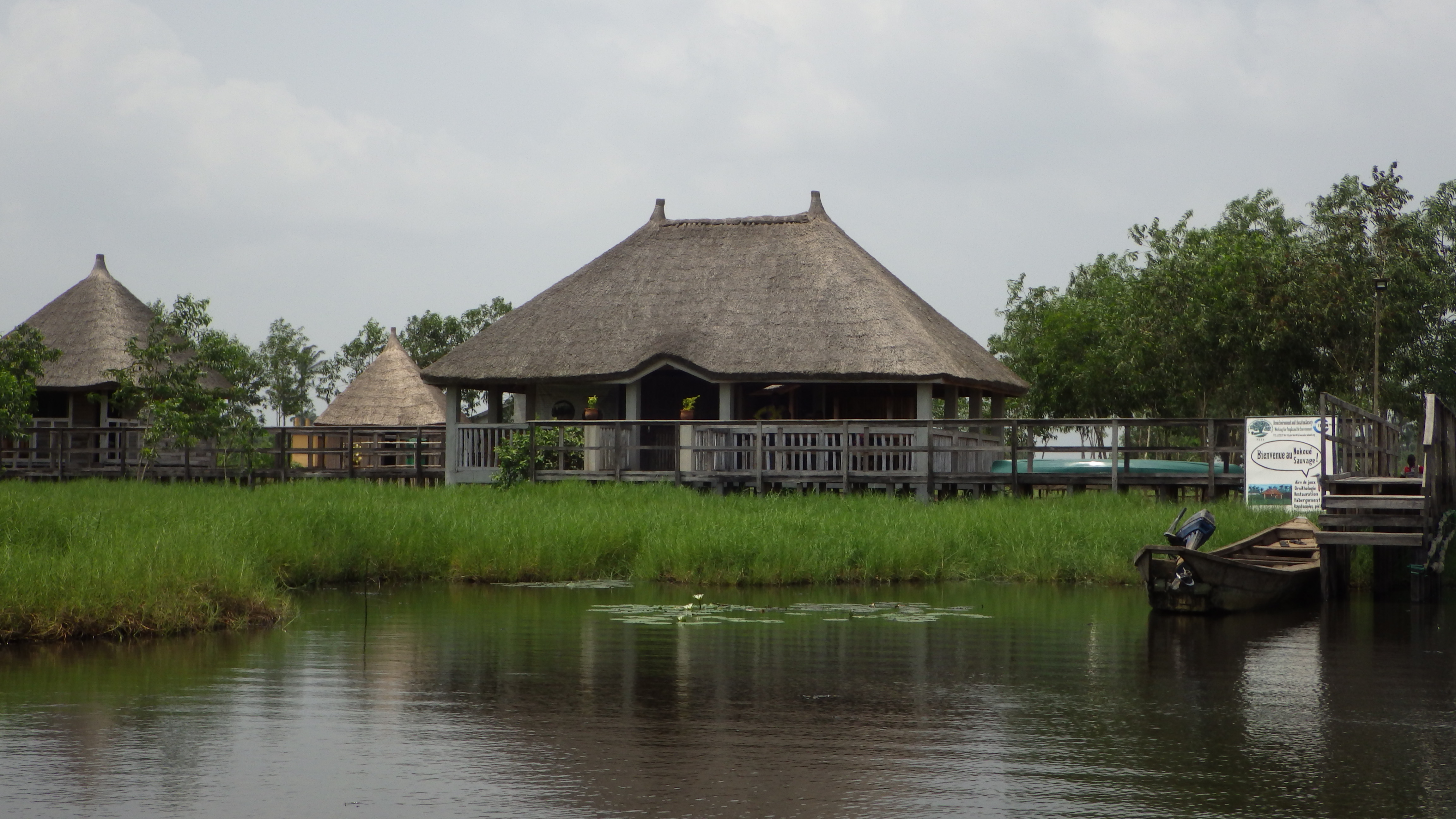- Ecotourism
- Threatened species conservation
- Bénéficiaire CEM (ex SOS Dassioko) - Conservation des Espèces Marines
- Montant du projet 126 066€
- Subventions FFEM 62 262€
-
État du projet en cours
The project is carried out in and around the Voluntary Natural Reserve of the Mouth of the Dodo (RNVED), in the South-West of Côte d’Ivoire. It is an integral part of the Marine Protected Area of Grand-Bereby currently being created. The area is home to various types of habitats consisting of marshy areas, relatively well-preserved forest islands, oil palm plantations, coconut palms and rubber trees. The reserve is fed by several rivers, the Dodo and Gnegbabo rivers constitute its main hydrographic network.
After decades of exploitation of the primary evergreen forest of West Africa for conversion into industrial or individual plantations and the illegal transformation of classified forests into huge cocoa and rubber plantations, today only islands of forest areas scattered here and there. The animal species subservient to these ecosystems have suffered the negative effects of this anarchic exploitation, with a significant reduction or even complete disappearance of certain populations of species from areas where they were initially present.
Habitat destruction through lawless agricultural practices and illegal hunting in southwestern Ivory Coast by local people has strongly negatively impacted populations of Mecistops cataphractus, a species listed as Critically Endangered (CR) on the IUCN Red List. Indeed, the West African false gharial (Mecistops cataphractus) is among the crocodile species most seriously threatened by habitat loss and encroachment, as well as poaching. The Voluntary Natural Reserve of the Mouth of the Dodo (RNVED) presents ecological assets for the conservation of this species but also has, with the confirmed presence of the three species of crocodiles present in West Africa, ecological potential. tourism that can be developed for the benefit of local populations.
